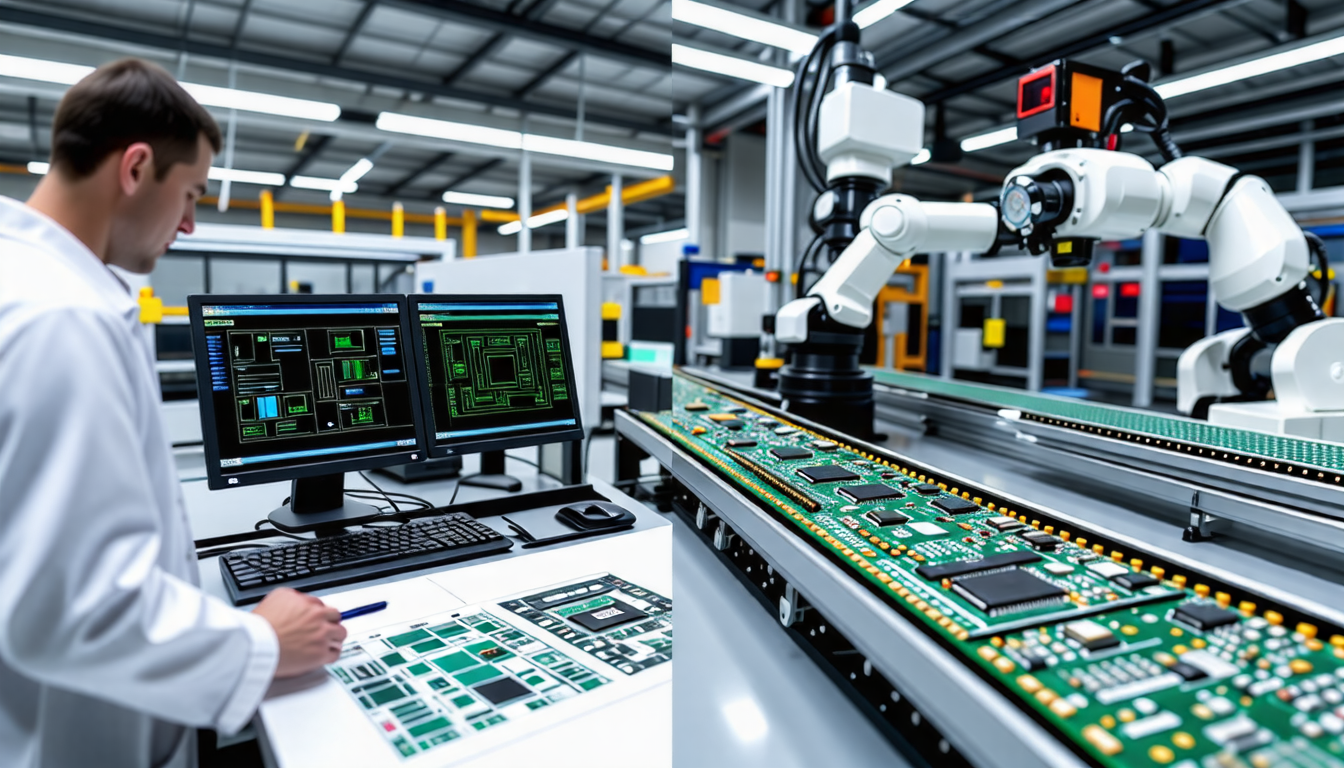|
IN BRIEF
|
In a world increasingly driven by sustainability, appliance manufacturers are at the forefront of a transformative journey. Navigating the complex web of environmental regulations isn’t merely a compliance task; it is a fundamental shift towards innovation and eco-responsibility. As governments worldwide tighten standards to reduce energy consumption and minimize hazardous waste, understanding these regulations becomes paramount. From the mandates of the Energy Policy and Conservation Act (EPCA) to the fresh impact of recent standards like the Environmental Standards for Appliances in Colorado, manufacturers must stay informed and agile. The stakes are high as they balance the dual objectives of meeting consumers’ demands and ensuring the safeguarding of our precious natural resources. This exploration unveils the driving forces shaping a greener future in appliance production.

Environmental regulations play a crucial role in guiding appliance manufacturers toward sustainable practices. With the increasing awareness of environmental issues, companies need to navigate a maze of laws and standards designed to minimize their impact on the ecosystem.
Future Trends in Appliance Regulations
The future of appliance manufacturing will likely see heightened scrutiny and evolving regulations aimed at promoting sustainability. With the exacerbating impacts of climate change, manufacturers will need to remain agile and responsive to new standards that emerge.
It is also anticipated that the focus on smart appliances—which utilize advanced technology to reduce energy consumption—will grow. As the demand for such products increases, manufacturers will be encouraged to innovate in ways that satisfy both consumer needs and environmental regulations.
Understanding environmental regulations is essential for manufacturers to navigate the increasingly complex landscape of appliance production. As compliance becomes intertwined with corporate responsibility and sustainability goals, staying informed and proactive will be vital for success in the industry. Embracing these regulations not only fosters a better environment but also positions manufacturers as leaders in the push for a more energy-efficient future.
Recycling and Disposal Requirements
One of the significant aspects of environmental regulations concerns the recycling and disposal of appliances. Manufacturers are tasked with ensuring that their products do not contribute to hazardous waste. Many appliances contain components classified as hazardous materials, which necessitate careful disposal.
Under these guidelines, companies are responsible for designing products that can be efficiently recycled. This includes considering the materials used in production and the ease with which they can be reclaimed and repurposed at the end of the product’s life cycle. Businesses are encouraged to adopt sustainable practices that vary from minimizing waste during production to maximizing product recyclability.
Regulations on Refrigerants
Another regulatory aspect related to appliances involves the use of refrigerants. Many conventional refrigerants have been found to contribute significantly to ozone depletion and global warming. Consequently, manufacturers must comply with strict guidelines regarding the type of refrigerants they utilize in their products.
Compliance with the Montreal Protocol is vital, considering it prescribes the phase-out of substances that harm the ozone layer. Companies are therefore encouraged to transition to more eco-friendly alternatives, thus aligning their operations with both national and international mandates.

Understanding Environmental Regulations is crucial for appliance manufacturers in today’s market, especially given the increasing focus on sustainability and efficiency. In 2023, new standards in states like Colorado have emerged, highlighting the importance of compliance for the appliance industry. These regulations are designed to ensure that manufacturers adhere to specific energy conservation benchmarks. For instance, appliances such as refrigerators and air conditioners must now meet stringent minimum efficiency requirements, which not only benefit the environment but also reduce long-term energy costs for consumers.
Additionally, the Energy Policy and Conservation Act (EPCA) imposes additional compliance responsibilities that cannot be overlooked. Manufacturers must implement DOE test procedures to certify that their products are compliant, and this includes addressing issues surrounding recycling and disposal of potentially hazardous materials found in appliances. With the rising cost of energy, which reached about $0.14 per kWh in the U.S. as of 2023, the push for energy-efficient appliances is more relevant than ever.
Moreover, the Bureau of Household Goods and Services (BHGS) plays a pivotal role in regulating these standards, ensuring that manufacturers not only comply but also innovate continuously. As more states adopt rigorous environmental standards, the pressure on appliance manufacturers will only intensify, making compliance not just a regulatory necessity but also a competitive advantage.

Understanding Environmental Regulations for Appliance Manufacturers is crucial in today’s eco-conscious climate. With laws like the Energy Policy and Conservation Act (EPCA) defining a framework for compliance, manufacturers must stay informed of evolving standards that govern energy efficiency. The recent establishment of the Environmental Standards for Appliances in Colorado exemplifies the heightened focus on sustainability and responsible disposal of products. Manufacturers and importers need to consider recycling and hazardous waste regulations, which play a significant role in compliance. Additionally, the implementation of minimum energy conservation standards by the Building Technologies Office not only helps in mitigating environmental impact but also aligns the appliances with consumer expectations for greener alternatives. Staying ahead in this regulatory landscape ultimately ensures a path towards innovation.
FAQ
What are the main environmental regulations that appliance manufacturers must comply with?
R: Appliance manufacturers must comply with regulations that cover energy efficiency, hazardous waste management, and refrigerant use. This includes adherence to standards set by the Department of Energy (DOE) and guidelines under the Energy Policy and Conservation Act (EPCA).
How does the Energy Policy and Conservation Act (EPCA) impact manufacturers?
R: The EPCA imposes strict compliance measures on manufacturers and importers, requiring them to assess and mitigate their environmental impact. Non-compliance can lead to penalties and stricter enforcement actions.
What role does the Building Technologies Office (BTO) play in appliance standards?
R: The BTO is responsible for implementing and overseeing minimum energy conservation standards across various categories of appliances and equipment, which helps to ensure manufacturers meet federal regulations.
How can manufacturers stay informed about new environmental standards?
R: Manufacturers should actively engage in industry associations, attend relevant workshops, and regularly consult government sites for updates on environmental regulations and compliance requirements.
What are the consequences of failing to comply with environmental regulations?
R: Failing to comply can result in significant fines, mandated product recalls, and damage to the manufacturer’s reputation. Ensuring compliance not only protects the environment but also maintains the integrity of the business.

